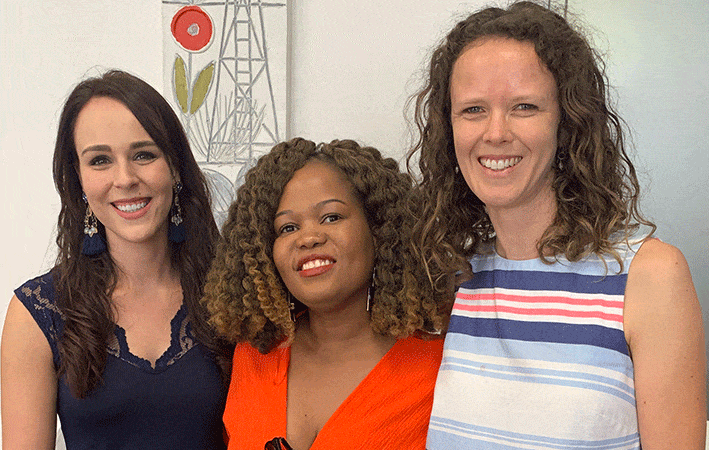Alison Barr, Hlanzeka Mpanza and Anja Lategan will forever go down in the annals of Stellenbosch University (SU) as trailblazers. They are the first three students to graduate with an MSc degree in Food and Nutrition Security from the institution, after the programme was first launched in 2017.
Mpanza is a nutritionist, while Barr and Lategan are food scientists. They received their degrees during the University’s April 2019 graduation ceremonies.
The programme provided them with a broad, comprehensive take on health matters and the role that adequate nutrition plays therein. It was conceptualised to help policy makers and practitioners in different sectors make better decisions about issues related to food provision and food security.
Only fifteen students are selected each year. The programme comprises twelve modules and a research assignment, and students do not have to be based on campus full time. Coursework is presented jointly by the SU Faculty of AgriSciences’ Departments of Food Science and of Agricultural Economics, along with the SU Faculty of Medicine and Health Sciences’ Department of Interdisciplinary Health Sciences (Human Nutrition Division).
According to programme leaders Prof Xikombiso Mbhenyane of the SU Division of Human Nutrition and Prof Gunnar Sigge of the SU Department of Food Science, issues around food and nutrition are complex and multidisciplinary by nature, because human livelihoods are at the heart of it.
“The MSc in Food and Nutrition Security programme aims to equip students to view the holistic nature of food and nutrition security, to take all factors into account and to propose solutions to specific problems in the food system while keeping the bigger picture in mind,” explains Prof Gunnar Sigge of the SU Department of Food Science. “The programme aims to bring together the natural, social and nutrition sciences to address these issues.”
Capetonian Alison Barr worked in the field of food quality and food safety before embarking on her MSc studies. She is serious about food equality in terms of rights and access to food, ways to support industries and optimise value chains so that sustainable food systems can be created.
“The range of modules that make up the course gave me well-rounded exposure to all aspects impacting food and nutrition security,” she explains.
In her research project, Barr investigated the competitiveness of the local wine sector, and learnt about aspects of agricultural economics. Anja Lategan’s research project was about the nutritional value of insects, and whether food products made from insects containing iron, zinc, vitamin A, folic acid and iodine could solve people’s nutritional needs.
“The skills that I obtained through my studies, such as critical and analytical thinking, report writing and how to collaborate with people, are of great value in my career,” states Lategan, who lives in Kuils River and recently started a new job in Bellville.
Nutritionist Hlanzeka Mpanza works for a multinational food company in Durban. She decided to follow the programme to gain more insights into the broader decisions made about food that also influence sustainable change.
The first three students to receive their MSc degrees in Food and Nutrition Security from Stellenbosch University are (from left) Anja Lategan, Hlanzeka Mpanza and Alison Barr.
The South African Pork Producers’ Organisation (SAPPO) coordinates industry interventions and collaboratively manages risks in the value chain to enable the sustainability and profitability of pork producers in South Africa.








